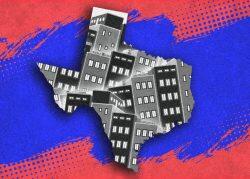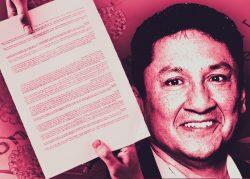 Texans could lose millions in federal rental assistance
Texans could lose millions in federal rental assistance
Trending
Rent relief check? Cleared. Tenant? Evicted.
Some Texas landlords are collecting federal rent relief money and still evicting their tenants

Some landlords who got a piece of Texas’ $2 billion in rent relief money evicted their struggling tenants anyway, according to the Texas Tribune.
Texas received more than $2 billion in 2021 from the $1.9 trillion American Rescue Plan Act signed by President Joe Biden to set up the state’s rent relief program. The funds were intended to protect landlords and to help keep families in their homes who had lost income because of the Covid-19 pandemic.
The program went awry, in Texas and elsewhere, as landlords and tenants failed to communicate and work together to meet its requirements. In some cases, that meant that tenants who were approved for federal rental assistance ended up getting evicted anyway, the Tribune reported. Problems with the program weren’t only in Texas, though.
According to the National Housing Law Project, 86 percent of the 119 lawyers across the country who responded to a survey gauging how the end of a federal moratorium on evictions was affecting tenants said they had seen cases where landlords either declined to apply for assistance from rent relief programs or took the money and proceeded to kick out their tenants.
When Congress set aside more than $46 billion for emergency rental assistance, they intended for that money to keep people in their homes, said U.S. Representative Sylvia Garcia, a Democrat from Houston. The idea of landlords taking rent relief dollars and still evicting tenants is “outrageous,” she said, and could warrant investigation.
One such household was the Scott family, which had fallen behind on rent in June as medical bills from treating their disabled daughter piled up. When Cherice Scott’s landlord initiated the eviction process, she had already requested help from Texas’ federally backed rental assistance program. She told the paper that the rental office staff were confident that she didn’t need to worry about eviction as they waited for the relief money to be sent– or to even show up in court.
Then, on an early October afternoon, Scott arrived home from work to find most of her belongings spread out on the lawn and the locks changed. Due to her absence in court, her eviction had been approved.
Scott told the Tribune that after weeks of phone calls, a Texas Rent Relief program staffer had told her that her former landlord – Houston-based Blazer Real Estate Services – had received more than $11,000 in rent relief, enough to cover the six months’ back rent her family owed. Blazer didn’t respond to calls and emails from the Tribune requesting comment, the paper reported.
“They were very well informed that that money was there and it was coming to them,” said Scott, who’s now living in a short-term rental in Missouri City with her family. “Yet they still pushed us out.”
Read more
 Texans could lose millions in federal rental assistance
Texans could lose millions in federal rental assistance
 Hays County hires contractor for plagued $6.9M rental assistance program
Hays County hires contractor for plagued $6.9M rental assistance program
Several other landlords looked at by the Tribune, like Scott’s, evicted their tenants in the period between the initial rent relief application and when the government money arrived and then kept it — an apparent violation of the program’s requirements for landlords. In some cases, landlords declined to renew leases after receiving rental aid, which is legal.
In the case of Round Rock resident Stephanie Gates, the check arrived in time, but went to the wrong place. In 2020, Gates lost her job after she missed a week of work because of a medical problem. In September, she was relieved to find that she qualified for Texas’ rent relief program and that it would cover her rent through November, which was worth 11 months of rent totalling $12,740.
“I’m sitting thinking, ‘My rent’s paid, OK, all I have to worry about is December and January,’’’ Gates said, but December was when the property owner filed an eviction case against Gates and gave her a notice to vacate.
It turns out the state program had sent the check in September, but to the wrong address.
When Gates presented this fact at her eviction hearing, the Williamson County Justice of the Peace overseeing the case, KT Musselman sided with the landlord and granted the eviction, which was carried out in early 2021.
“I did everything right, and to still have my stuff thrown down the street … it’s just something that I’m still trying to process,” Gates said.
Though Musselman declined to explain his decision, he told the Tribune over the phone that he sympathized with the landlord for going 11 months without rent from Gates and the fact that the rent relief check didn’t cover the whole amount sought by the landlord.
“In our view, the judge made a mistake letting the trial proceed as soon as [the property manager] confirmed that the owner had a pending application for rental assistance,” said Alexander Stamm, Gates’ lawyer.
“You can’t have it both ways with Texas Rent Relief,” said Stamm. “You can’t get paid directly, and also break the promises you made that were designed to keep someone in their home.”
None of the government agencies interviewed by the Tribune —including the Texas Department of Housing and Community Affairs, which runs the state rent relief program— said they keep track of these kinds of cases.
“As much as we work to mitigate human error, the potential for application errors exists,” said TDHCA spokesperson in an email to the Tribune. “If issues are discovered or brought to our attention, like payments sent to an incorrect address, or payments sent to a landlord who has evicted the tenant, we will take corrective measures, like recapture or other necessary steps.”
The Texas Tribune – Maddy Sperling




